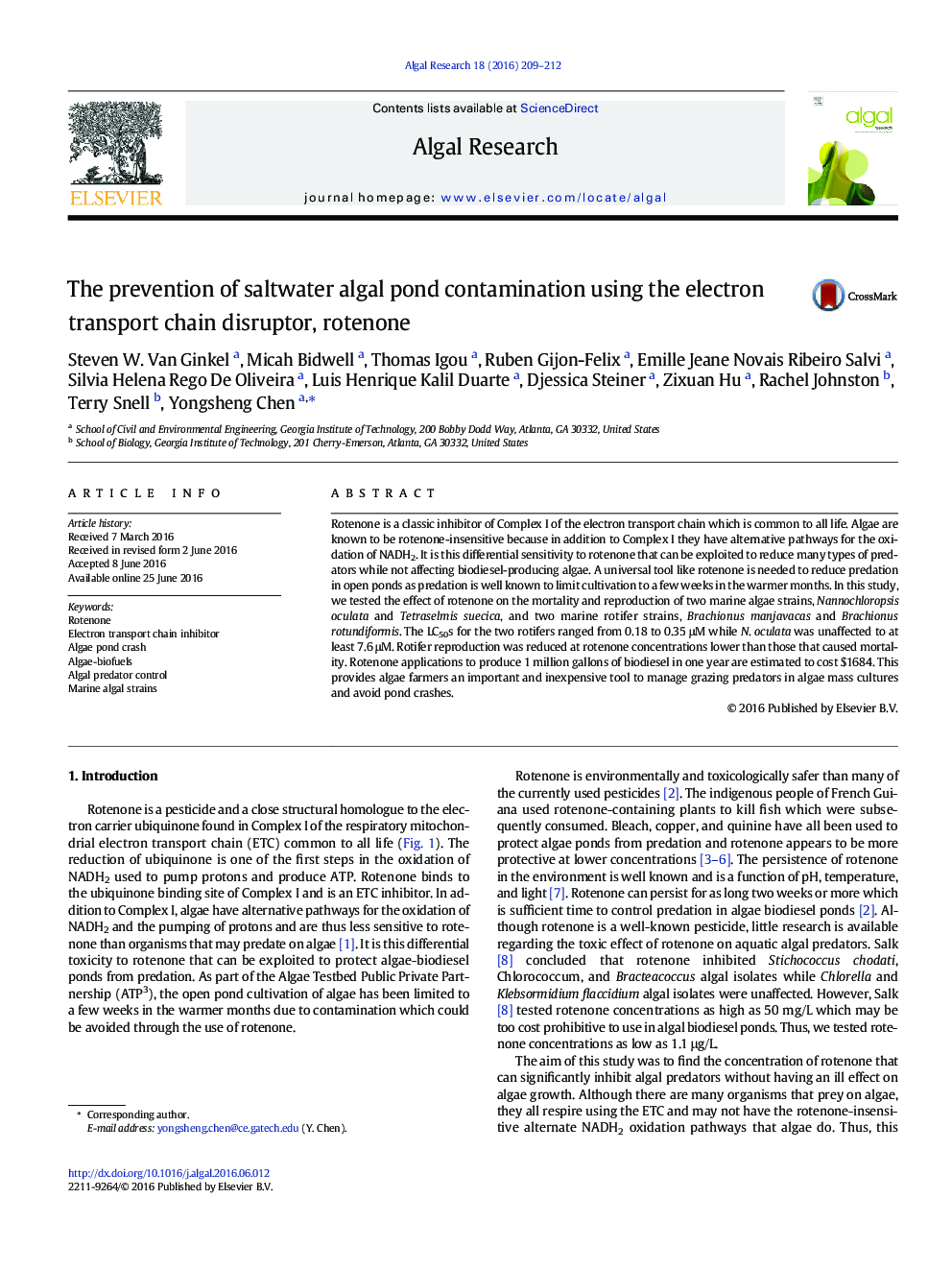| Article ID | Journal | Published Year | Pages | File Type |
|---|---|---|---|---|
| 8086677 | Algal Research | 2016 | 4 Pages |
Abstract
Rotenone is a classic inhibitor of Complex I of the electron transport chain which is common to all life. Algae are known to be rotenone-insensitive because in addition to Complex I they have alternative pathways for the oxidation of NADH2. It is this differential sensitivity to rotenone that can be exploited to reduce many types of predators while not affecting biodiesel-producing algae. A universal tool like rotenone is needed to reduce predation in open ponds as predation is well known to limit cultivation to a few weeks in the warmer months. In this study, we tested the effect of rotenone on the mortality and reproduction of two marine algae strains, Nannochloropsis oculata and Tetraselmis suecica, and two marine rotifer strains, Brachionus manjavacas and Brachionus rotundiformis. The LC50s for the two rotifers ranged from 0.18 to 0.35 μM while N. oculata was unaffected to at least 7.6 μM. Rotifer reproduction was reduced at rotenone concentrations lower than those that caused mortality. Rotenone applications to produce 1 million gallons of biodiesel in one year are estimated to cost $1684. This provides algae farmers an important and inexpensive tool to manage grazing predators in algae mass cultures and avoid pond crashes.
Keywords
Related Topics
Physical Sciences and Engineering
Energy
Renewable Energy, Sustainability and the Environment
Authors
Steven W. Van Ginkel, Micah Bidwell, Thomas Igou, Ruben Gijon-Felix, Emille Jeane Novais Ribeiro Salvi, Silvia Helena Rego De Oliveira, Luis Henrique Kalil Duarte, Djessica Steiner, Zixuan Hu, Rachel Johnston, Terry Snell, Yongsheng Chen,
